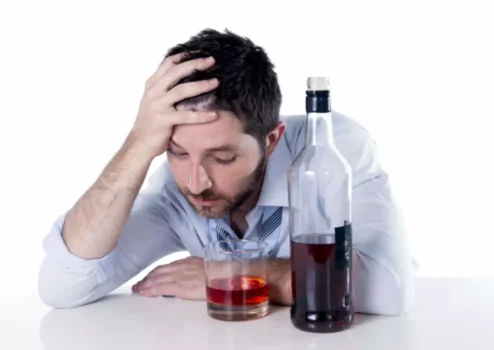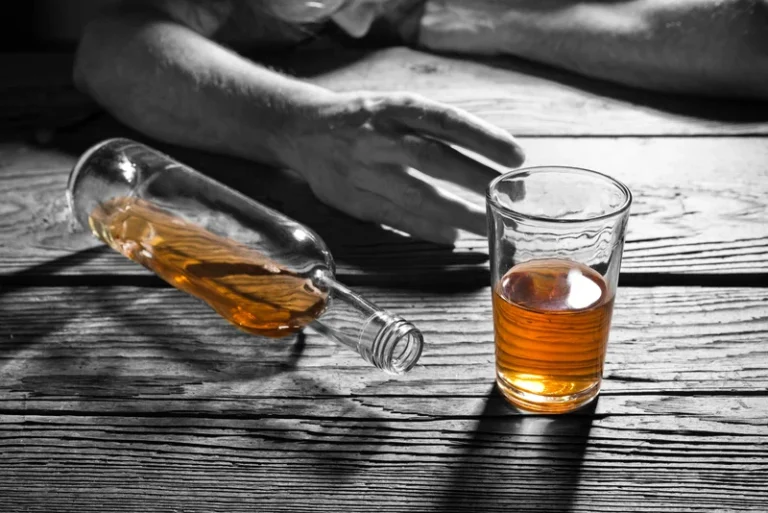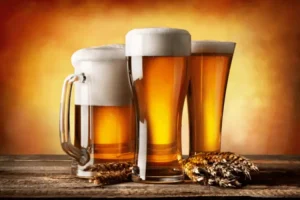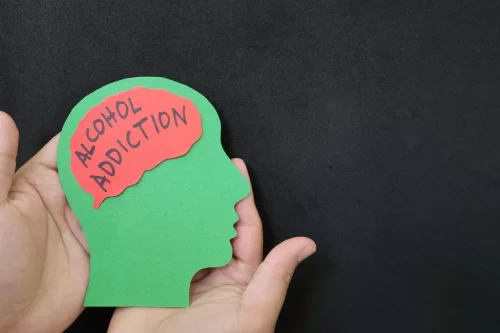They tell themselves that because they can pay their own bills, there isn’t a problem. High-functioning alcoholics are one of five types of alcoholics. Also referred to as functional alcoholics, these people usually don’t realize that they rely on alcohol to feel normal. They don’t experience the typical consequences of alcoholism, such as drunk driving arrests, financial problems or blackout episodes. Although you may still hear people talking about “alcoholism” or “alcohol abuse,” the official term is alcohol use disorder (AUD).
More on Substance Abuse and Addiction
High-functioning alcoholics can be moms, dads, husbands, wives, brothers or sisters. And the effects of alcoholism on families can be significant. The type of relationship you have with the person with alcoholism often affects how his or her disease affects you. Many are not viewed by society as being alcoholic, because they have functioned, succeeded and/or over-achieved throughout their lifetimes.
They lose track of friendships and prioritize time with alcohol over family time. One thing to bear in mind is that alcohol addiction is serious. Many of us overlook that fact because it’s on the shelves of our local supermarket, but its withdrawals are more dangerous than most illicit drugs. If you consume large amounts of alcohol for a prolonged period, you will experience both mental and physical problems upon stopping use.
This means someone may appear to function normally in daily life while struggling with alcohol dependence. Sometimes, people with alcohol use disorder don’t recognize their drinking is an issue, especially if they meet their work and home life responsibilities despite their alcohol dependence. As such, they may justify their drinking as a normal part of life—even though it isn’t. Support groups can also help people who are codependent on a high-functioning alcoholic. Co-Dependents Anonymous is a 12-step program for people who are trying to recover from a codependent relationship. Other support groups, such as Al-Anon, are available for friends and family members who need help dealing with an alcoholic’s issues.
Support Groups
People who are in a codependent relationship with an alcoholic prioritize the needs of the alcoholic over their personal needs. They often suffer a variety of mental health issues, such as low self-esteem and depression. If you’re suffering from the effects of codependency, it may be time to take a break or distance yourself from the relationship. Issues with work, school, and relationships are common among people living with AUD.
Consider speaking to your primary care provider about your concerns or attending a support group as a first step. These therapies are available one-on-one or in small groups in an inpatient or outpatient setting. Some people with AUD may attend an inpatient recovery program, in which they stay at a facility for at least 28 days to receive concentrated treatment in a controlled environment. It can be hard to stop enabling someone you care about once you’ve recognized it.
- In the short term, alcohol use increases the risk for alcohol poisoning, fetal alcohol syndrome, accidents, injuries, violence, and risky sexual behavior.
- Functional alcoholics may not even realize they’re actively concealing symptoms of their disorder.
- A functional alcoholic’s outward appearance is one of being physically and mentally healthy.
- They may take steps to avoid the person while they are drinking, or they may experience feelings of guilt, shame, or self-blame.
- Drinking alcohol at unconventional times—such as early in the day or at gatherings where nobody else is drinking—is another hallmark of this disease.
- And any alcohol abuse raises the odds of domestic violence, child abuse and neglect, and fetal alcohol syndrome.
Get the help you need from a therapist near you–a FREE service from Psychology Today. Sarah Allen Benton, primary therapist, Turning Point, New Haven, CT; author, Understanding the High-Functioning Alcoholic, Praeger, 2009. The most well-known support group is Alcoholics Anonymous, but there are many other 12-step programs. Get cost-effective, quality addiction care that truly works. Every person who loves someone psilocybe semilanceata habitat with an addiction has to choose whether to help the person or to distance themselves from the person.
How well do you score on brain health?
If a person is succeeding at work, looks happy with their family, and has no outward signs of distress, how can you tell if someone is addicted to alcohol? It’s possible that the person with the problem doesn’t even know it. According to the National Institute on Alcohol Abuse and Alcoholism (NIAAA), an estimated 85.6 percent of people aged 18 and older reported drinking alcohol at some point in their life. For most of those people, their drinking stopped after that night. Alcoholics never intended to become addicted to the substance and likely weren’t aware as they were becoming dependent on it.
Regardless of whether the person can function in some aspects of life, alcoholism is a serious can you drink and take shrooms disease. High-functioning alcoholics need treatment just like other alcoholics do. Unfortunately, even when functional alcoholics begin to recognize that they have a drinking problem, they still resist reaching out for help. By the time they admit the problem, their withdrawal symptoms—which can begin within a few hours after their last drink—can become more and more severe. A functional alcoholic’s outward appearance is one of being physically and mentally healthy.
Unfortunately, it’s no accident that functioning alcoholics hide their secrets so well. They know exactly what they’re doing, so how do you determine if someone you know or love is a functional alcoholic? They might even be high achievers or in positions of power.
It’s merely a person dependent upon alcohol but is present in their engagements and functions in society. For most addicts, it’s easy to pinpoint that they are using substances. However, functional alcoholics seldom miss work or other obligations. They manage all areas of their lives, including at home, work, and their families. Many of them are outwardly successful, and you’d never guess there was an issue, but that’s what they want. However, even high-functioning alcoholics can’t keep drinking problems a secret forever.
These achievements often lead to an increase in personal denial as well as denial from colleagues and loved ones. These are just a few of the stereotypes about alcoholics that are pervasive throughout society. These stereotypes increase denial and prevent withdrawals from cymbalta many alcoholics from getting proper diagnosis and treatment. High-functioning alcoholics (HFAs) defy these stereotypes and often go undetected because they do not fit the image of the “typical” alcoholic. The way people with alcohol use disorder present in their day-to-day lives varies significantly. Media portrayal of people with alcohol use disorder is often stereotypical and does not accurately reflect the complexity of alcoholism as a disease.
Relating to other people with substance abuse issues may help someone break through denial and begin to recover. On the outside, high-functioning alcoholics may appear to be great parents. They may show up to their child’s events and seem to have good relationships with their children. But they may choose to drink at home instead of spending time with their children. Or they may drink in front of their children, increasing their risk of becoming an alcoholic when they grow up.
A night out on the town used to be one cocktail, and you’d be buzzed, but continuous drinking led to a tolerance, which then meant you needed two or three to feel that way. Now, you might have reached a point where you wake up and need a drink to get out of bed. Well, there are a lot of problems with it, and according to the statistics, you’ll soon become a statistic if you don’t change your ways. In the beginning, alcohol consumption may not seem like a big deal, especially if it’s not interfering with your personal or work life.
Some people seem to be just fine even though they misuse alcohol. You may hear them called “functional” or “high-functioning” alcoholics. But those aren’t official medical terms. “Functioning alcoholic” is an outdated term that in the past was used to describe people with alcohol use disorder who appear to meet their everyday responsibilities. However, alcohol use disorder is diagnosed based on a set of criteria that aren’t always seen by others. To cope with your stress, you may want to attend a support group for family and friends of people with alcohol use disorder (such as Al-Anon) or consider therapy.












